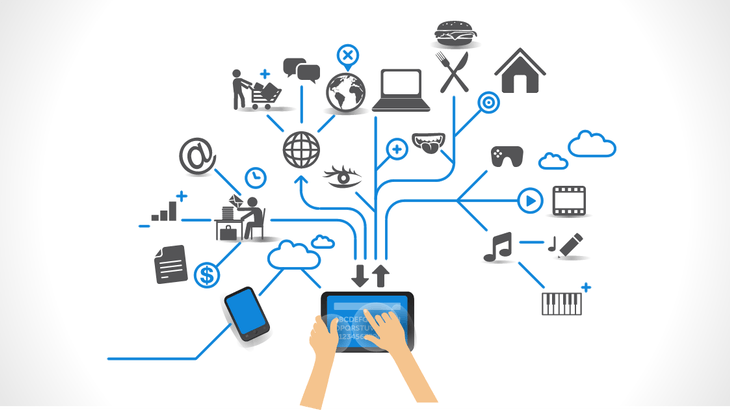The Internet of Things (IoT) is a new hot buzzword in the technology arena. It is the inclusion of software and electronics in any device that is not usually considered computerised in nature, giving it an ability to network and communicate with other devices to deliver more value.
In simpler words, the Internet of Things is the amalgamation of the physical world with the digital, wherein everyday objects are embedded with technology – like sensors and Wi-Fi – to obtain a unique online identity and be able to interact with their external environment. This network of “smart” devices offers various benefits for individuals, society and businesses at large, including improved quality of life, improved business process, reduced waste, increased safety and new revenue opportunities.
IoT represents the biggest technology wave for years to come. According to a recent report, it is predicted that there will be 25-50 billion connected devices (excluding PCs, tablets and smartphones) by 2020 which will transform every aspect of our lives and will generate around $US4-$US11 trillion per year in economic value. From wearable technology through to smart homes and autonomous cars, the impact of IoT will be profound. Tech-giants like IBM, Cisco and SAP are launching their internal business units and focusing on growth of the infrastructure of the IoT and investing spending billions to gain a competitive advantage. Major manufacturers like General Electric, Ford, Philips and Bosch are working hard to develop the next generation of intelligent devices.
For geographically challenged countries like Australia, the IoT holds great promise for industries to compete globally. A recent study shows that two-thirds of companies having deployed and measured IoT solutions have reduced their operational costs by 28% on an average. Given the fact, Australian companies are on the cusp of a great opportunity to transform their businesses and achieve significant growth. The country has seen the rapid adoption of this technology across diverse sectors like finance, agriculture, healthcare, manufacturing, energy and logistics to cut costs and improve efficiencies, and as the IoT reaches its maturity it will touch many more industries.
As the IoT continues to expand, forward-thinking technical professionals will enjoy a number of challenging and rewarding job opportunities. Developers and coders having the right mix of IoT skills and experience will command big bucks. There are multiple other job roles that are in demand in the IoT space such as – Business Intelligence Specialists with skills in sensor data analysis, predictive analysis and data center management; Cyber Security Specialists to manage complexity in IP-enabled devices; UI (User Interface) & UX (User Experience) Designers to develop effective, user-friendly interfaces; Mobile Application Developers to manage smart objects controlled with mobile devices like tablets, smartphones and wearables; Computer Hardware Engineers to design and develop the actual electronics at the heart of the IoT movement; and Networking Pros to manage embedded sensors used by smart devices to communicate with their environment. The list of job opportunities in the IoT will continue to grow as new business challenges and technical breakthroughs arise.

